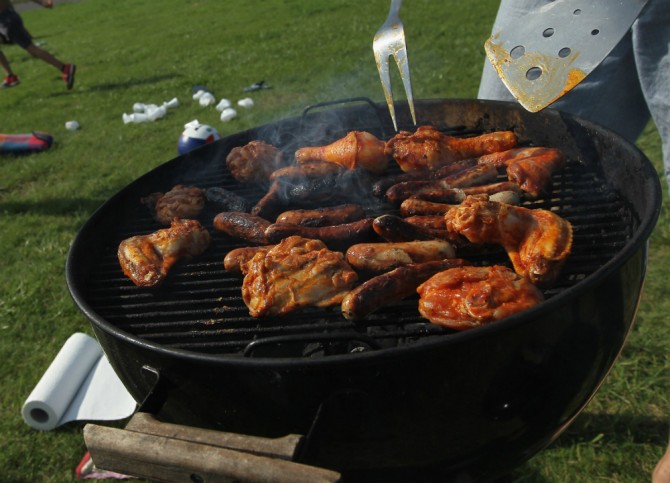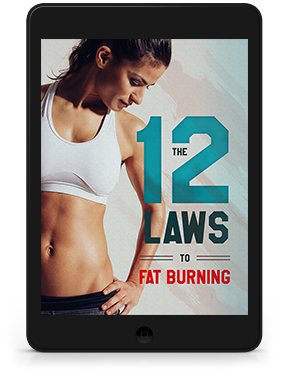
Is BBQ Killing You?
Barbecues and carcinogens, BBQs and carcinogens
Barbecue season is upon us. The Fourth of July is pretty much a National BBQ Day as we chow down on tons of grilled food. Many of us will watch what we eat and make sure not to overindulge or eat too many fatty foods or sugar or red meat. However, in recent years another concern about BBQs has begun to pop up – carcinogens in barbecues. Are barbecues causing cancer?
Heat Risks & Barbecuing
There is some evidence linking barbecues with cancer. However, the real cancer risk comes from eating food that is cooked at very high temperatures. Foods that are cooked at high temperatures contain carcinogens called heterocyclic amines (HCA). HCAs present when the amino acids normally found in some foods are exposed to extreme temperatures which causes a chemical reaction. This can also happen to foods that are broiled or fried to a very high temperature.
How Barbecuing Could Cause Cancer
Fear of contracting other illnesses like salmonella and E.coli often mean that we over-cook or burn BBQ food. The blackened char on barbecued foods is where HCAs reside and what could cause people to develop cancer in the future. Barbecuing also creates a second chemical compound which has been linked to cancer – polycyclic aromatic hydrocarbons (PAHs). This compound is created when the fat from foods being grilled on the barbecue drips onto the BBQ coals and generates a smoky PAH flare-up which coats the food in potential carcinogens.
Do All Foods Carry An Equal Risk?
Some foods carry a greater risk than others of becoming carcinogenic. When barbecued, certain foods contain a higher concentration of HCAs and PAHs:
- Tests indicate that barbecued bacon carries the highest amount of carcinogenic material.
- Pork came in second place and was quickly followed by beef.
- Poultry is not immune. Chicken and turkey cooked on a BBQ also pick up carcinogens.
- The effects on fish and shellfish were not studied in-depth but when barbecued seafood can also become contaminated with HCAs and PAHs.
- Vegetables and fruits do not contain the same mix of proteins and sugars as meat nor do they have fat drippings so you can grill and eat your greens risk free!
Can I protect myself from Exposure to BBQ Carcinogens?
The good news is that there are ways to limit the levels of HCAs and PAHs your food comes in contact with. Firstly, when you are barbecuing, start grilling on a medium – high heat and only increase if it looks like the food is not cooking. Remember to turn your food regularly so it doesn’t burn on one side. The desired color is browned; don’t cook until the food is black! You should also try to clear excess fat as you go along or cover the grill with aluminum foil with holes poked through. This will stop the fat hitting the BBQ coals and prevent the flare ups that create PAHs. If you can’t do this, keep a bottle of water handy so you can squirt out any flare ups.
There are also a bunch of other precautions you can take:
- Wood chips from hickory or maple trees burn at a cooler temperature than softwoods. These chips will decrease your chance of burning your food. Charcoal briquettes also burn at a cooler temperature than coal.
- Choose lean meats which contain less fat and won’t drip as much onto the burner.
- Select smaller and thinner meat pieces. These won’t take as long to cook so they won’t be exposed to carcinogens for as long as bigger pieces of meat.
- Grill up lots of veggies!
- If possible, slow cook your meat in an oven before BBQ time. Later, you will just need to sear the meat on the grill for a short period of time. This way you’ll get all the smoky smell and taste but fewer toxins.
- Marinade or rub your meat in herbs before grilling. Marinades like red wine can block HCAs and PAHs from forming plus a red wine marinade will contain some antioxidants. Herbs like rosemary, basil, sage, mint and oregano can also shield your meat from carcinogens.
- Remember to clean your grill after every BBQ! A buildup of dirt, grease and food bits will lead to more burning during future BBQs and increase the risk from HCAs and PAHs.
Feeling better about your health or fitness shouldn’t be a chore. If you ever need some extra support, come by BEFIT to speak with one of our trainers or simply fill out a Free Consultation Request by clicking the link and a fitness professional will reach out to you within 24 hours.













Leave a Reply